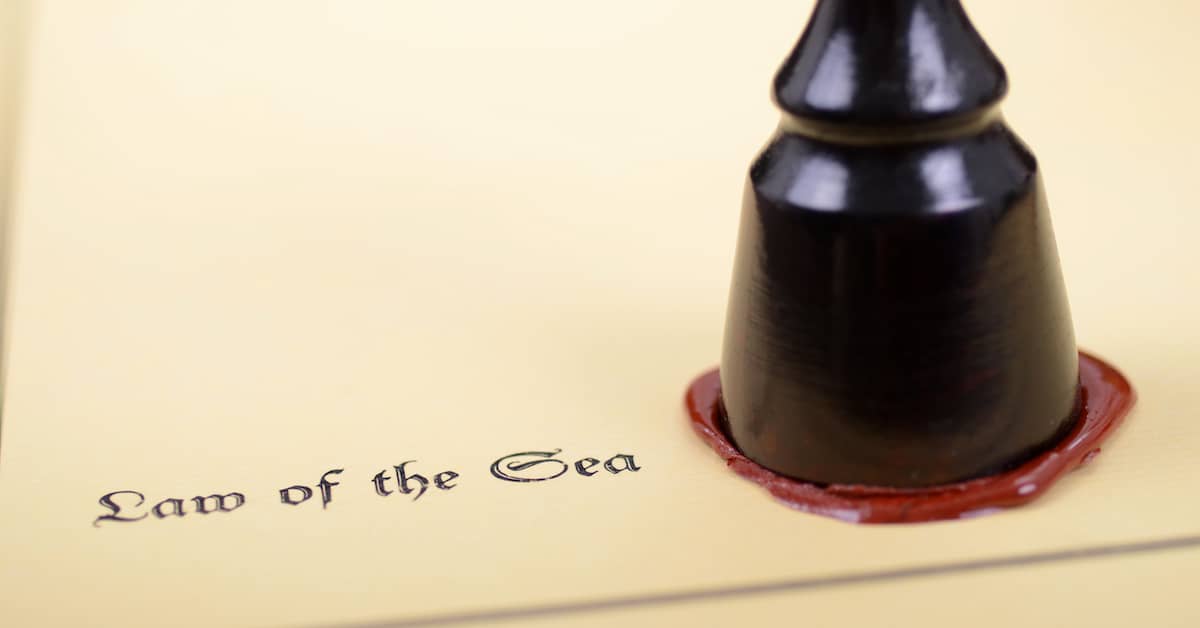
A Houston maritime attorney can provide valuable assistance if you are injured on the job at sea, in a boating accident, or involved in an offshore injury. Maritime law is a specialized field, making it essential to consult with a knowledgeable lawyer if you have a claim.
Maritime law is inherently complicated due to the array of issues it covers and the numerous jurisdictions it spans. From shipping and commerce, personal injuries at sea, and environmental protection to maritime liens and salvage rights, its authority extends beyond the boundaries of a single country. Maritime law often involves international waters and necessitates a deep understanding of international treaties and conventions. Moreover, each country may have its own distinct maritime laws, adding another layer of complexity to legal proceedings.
A Houston maritime attorney will understand these complexities and be well-equipped to fight for the rights and interests of those injured at sea or on other navigable waters. Patrick Daniel Law has the experience necessary to represent you in your claim. Call (713) 999-6666 today for a FREE case review. Our Strategic, Meticulous, Merciless firm can help you pursue the compensation you deserve!
Maritime law, also known as admiralty law, is a specialized field of law that governs legal activities, disputes, and offenses occurring on navigable waters, including the oceans, seas, and any waterway used for interstate or international commerce. It is an essential field of law that encompasses matters related to shipping, navigation, waterside property, the transport of passengers and goods by sea, and a host of other issues.
One of these crucial issues pertains to personal injuries that occur on or near navigable waters. Maritime personal injury law is difficult to tackle on your own, especially when trying to recover from your injuries and return to work. A Houston maritime attorney will be able to help you navigate the intricacies of your case.
Delving deeper into maritime personal injury law, consider the different avenues for compensation depending on where and how your injury occurred:
Also known as the Merchant Marine Act of 1920, the Jones Act is one of the main statutes considered in cases of personal injury at sea. 46 USC § 30104(a) states, “A seaman injured in the course of employment or, if the seaman dies from the injury, the personal representative of the seaman may elect to bring a civil action at law, with the right of trial by jury, against the employer.”
Basically, the law provides seamen the right to claim damages from their employers for injuries suffered during their employment due to employer negligence. Unlike workers’ compensation laws, the Jones Act allows seamen to pursue claims for pain and suffering, mental anguish, and other non-economic damages.
To qualify under the Jones Act, a worker must spend significant time working on a vessel in navigation. A Houston maritime attorney can help determine whether you qualify and guide you through bringing a Jones Act claim.
Not all workers at sea qualify as “seamen” under the Jones Act. Many harbor workers and longshoremen, for instance, do not qualify. In these cases, a lawyer would turn to the LHWCA.
The LHWCA provides compensation for medical care and vocational rehabilitation services to employees disabled from on-the-job injuries. Those injuries must have occurred on the navigable waters of the United States or in adjoining areas customarily used in loading, unloading, repairing, or building a vessel.
In addition, § 909 of the LHWCA provides death benefits to the victim’s family should their injuries prove fatal. These include funeral expenses of up to $3,000 and a percentage of the average wages of their deceased loved one.
Under maritime law, an injured seaman has a right to medical care, known as cure, and a daily living allowance, known as maintenance, until they reach maximum medical recovery. These maritime common law principles apply no matter who is at fault for the injuries.
The burden of proof is on the plaintiff in these matters. The plaintiff must prove that they were a “seaman,” they suffered an injury or illness while in service of a vessel, and “the amount of maintenance and cure to which the plaintiff was entitled,” according to § 7.11 of the maintenance and cure doctrine. A lawyer can assist in ensuring that an injured seaman receives these benefits following an injury.
The DOHSA is a federal law that provides remedies to the families of seamen who lost their lives more than three nautical miles offshore due to negligence or unseaworthiness. A Houston maritime attorney can seek damages on behalf of the bereaved family, which may include funeral expenses, lost wages, and more. The damages recovered under the DOHSA are subject to contributory negligence, meaning they will be reduced depending on the “degree of negligence of the decedent.”
46 USC § 740 extends maritime law to include injuries caused by a ship on navigable waters, even if the injury occurs on land. For example, if a ship’s cargo crane drops a load onto a dockworker standing on the pier, the dockworker’s lawyer could bring a claim under maritime law, even though the injury happened on land.
The doctrine of unseaworthiness imposes a duty on vessel owners to ensure their vessel, including its equipment and crew, is reasonably fit for its intended use. If a seaman is injured due to a vessel’s unseaworthiness, they may have a claim against the vessel’s owner. Evaluating unseaworthiness can be difficult, but an attorney can provide valuable insight and expertise.
Maritime law also governs personal injury claims for accidents that occur on cruise ships. These claims are often complex due to jurisdictional issues and contractual limitations outlined on the passenger ticket. A Houston maritime attorney would be well-versed in handling these intricacies.
Personal injuries sustained during recreational boating activities, such as jet-skiing or private boat tours, may also fall under maritime law. Depending on the nature of the accident, a lawyer might bring a claim under various theories of liability, such as negligence, product liability, or premises liability.
Offshore oil rig workers are exposed to hazardous conditions daily, which can lead to serious accidents. Maritime law provides avenues for compensation for these workers following an accident, and a lawyer would be able to guide an injured worker through the claim process.
Maritime law is a complicated and specific field that covers a broad range of personal injury situations occurring on or near navigable waters. The role of a Houston maritime attorney in such cases is crucial. They possess the knowledge required to navigate the ins and outs of maritime law and ensure that injured parties receive the compensation they deserve.
If you or a loved one has been injured at sea or in a maritime-related occupation, only an experienced maritime lawyer will be able to discern the exact law which covers your injury. Seeking the assistance of a lawyer can make a significant difference in your ability to secure fair compensation.
Attorney Patrick Daniel has been on both the defense and plaintiff side of maritime law since he started practicing admiralty law nearly 20 years ago in Louisiana. He brought his maritime injury expertise to focus solely on plaintiffs’ injuries when he started Patrick Daniel Law in 2005. Now, Patrick Daniel and his team represent maritime injury victims in Louisiana, Texas, Wisconsin, and all over the continental United States.
If you were injured in a maritime accident, it is in your best interest to consult a Houston maritime attorney. Patrick Daniel Law has vast experience with these types of cases, and we are ready to go to the courtroom if we have to. Contact us today for a FREE consultation.
 Top Truck Accident Lawyer in Pasadena
Top Truck Accident Lawyer in Pasadena Best of The Best Attorneys
Best of The Best Attorneys Best of the Best Houston Chronicle 2021
Best of the Best Houston Chronicle 2021 Best Motorcycle Accident Lawyers in Houston 2021
Best Motorcycle Accident Lawyers in Houston 2021 American Association for Justice Member
American Association for Justice Member The National Trial Lawyers 2016 – (Top 40 under 40)
The National Trial Lawyers 2016 – (Top 40 under 40) Multi-Million Dollar Advocates Forum 2016 (Top Trial Lawyer)
Multi-Million Dollar Advocates Forum 2016 (Top Trial Lawyer) Million Dollar Advocates Forum 2019 (Top Trial Lawyer)
Million Dollar Advocates Forum 2019 (Top Trial Lawyer) America’s Top 100 Attorneys 2020 (High Stake Litigators)
America’s Top 100 Attorneys 2020 (High Stake Litigators) Lawyers of Distinction 2019, 2020 (Recognizing Excellence in Personal Injury)
Lawyers of Distinction 2019, 2020 (Recognizing Excellence in Personal Injury) American Institute of Personal Injury Attorneys 2020 (Top 10 Best Attorneys – Client Satisfaction)
American Institute of Personal Injury Attorneys 2020 (Top 10 Best Attorneys – Client Satisfaction) American Institute of Legal Advocates 2020 (Membership)
American Institute of Legal Advocates 2020 (Membership) Association of American Trial Lawyers 2018 - Top 100 Award recognizing excellence in personal injury law
Association of American Trial Lawyers 2018 - Top 100 Award recognizing excellence in personal injury law American Institute of Legal Professionals 2020 (Lawyer of the Year)
American Institute of Legal Professionals 2020 (Lawyer of the Year) Lead Counsel Verified Personal Injury 2020
Lead Counsel Verified Personal Injury 2020 The Houston Business Journal 2021
The Houston Business Journal 2021